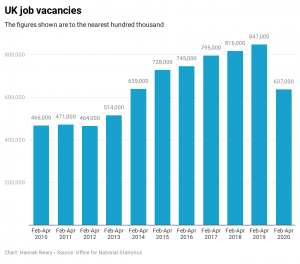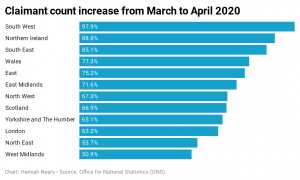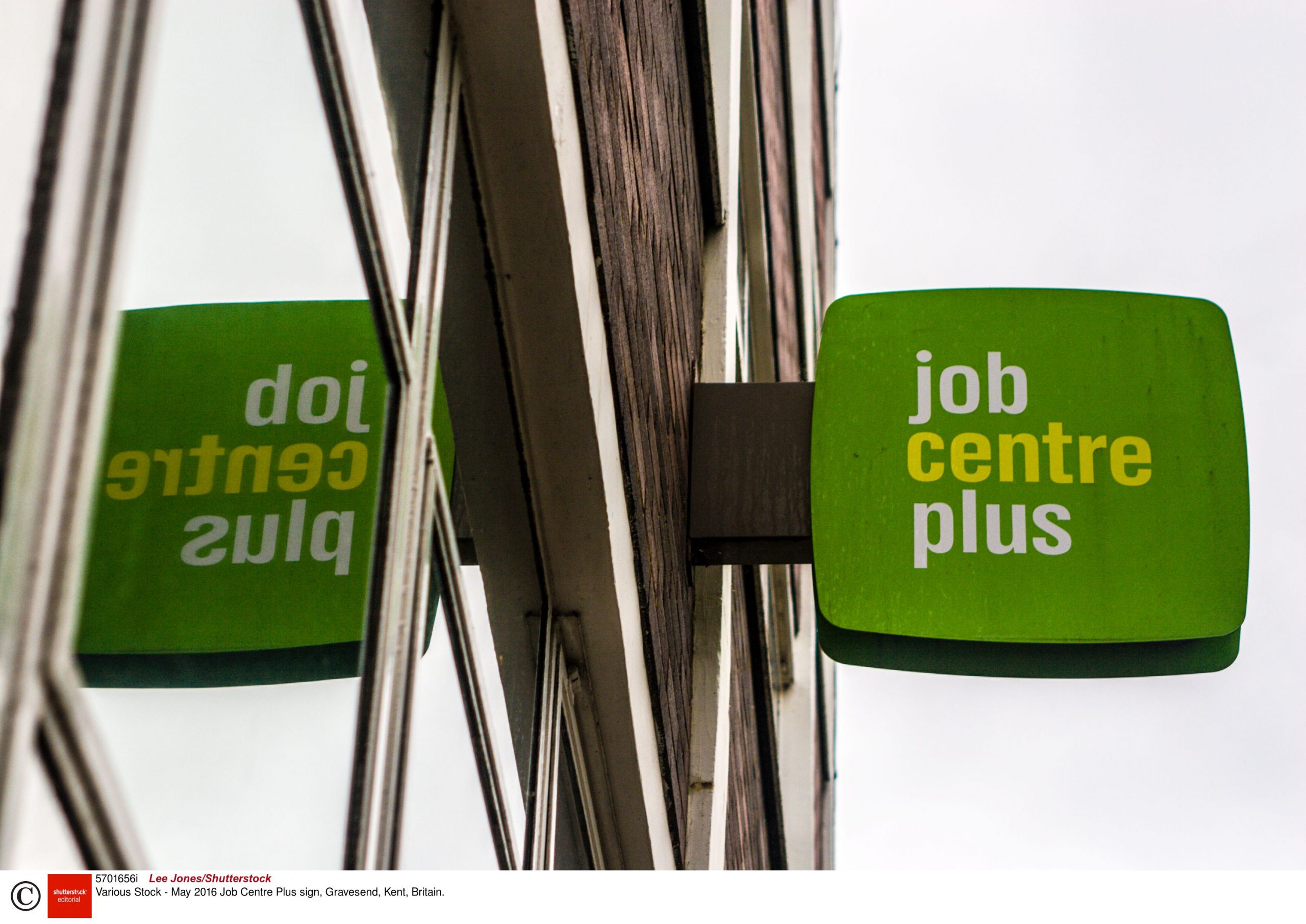The number of UK job vacancies plummeted and unemployment claims reached a record high in the three months to April 2020, experts revealed.
Following the outbreak of coronavirus, UK vacancies fell by 21 percent from February to April 2020 and the overall number of people claiming unemployment benefits reached over two million for the first time since 1996, according to the Office for National Statistics (ONS).
Chancellor of the Exchequer Rishi Sunak told the BBC the number of job losses “breaks [his] heart”.
“I’m working night and day to limit the amount of job losses,” he said.
Estimates showed there were 637,000 vacancies in the UK in February to April 2020, marking a 170,000 decrease when compared with November 2019 to January 2020 and 210,000 fewer vacancies than February to April 2019.
The accommodation and food services activities sector suffered the largest quarterly decrease in vacancies (32,000).

Willem Spanjers, senior lecturer in economics at Kingston University said: “The duration of the lockdown, the change in consumer attitudes, and the effect of Covid-19 on the international economy are causing lasting damage to the UK economy.”
Around 856,500 people registered for universal credit and jobseeker’s allowance benefits in April, marking a 69 per cent monthly increase in the number of UK claimants overall, the ONS revealed.
This was the biggest monthly increase since records began in the early 1970s.
The largest monthly increase of claimants was in the South West at 97.9 per cent with the lowest in the West Midlands at 50.9 per cent.

The ONS said the rise in claimants may not be a direct consequence of unemployment as the government increased eligibility for universal credit due to the pandemic.
The estimated UK unemployment rate was 3.9 per cent in the three months to March 2020, 0.1 per cent higher than the same period in the previous year.
It is expected to reach 10 per cent between April – June according to predictions made by the Office for Budget Responsibility.
Unemployment is not the proportion of the total population who are unemployed but a measure of people who do not have a job and have been actively seeking work within the last four weeks.
“At this stage, it is still too early to say how deep the long-term implications on the job market will be,” said Spanjers.
“It will depend on a number of factors, which include if and when effective treatments or a vaccine are found, and whether there are further waves of infection resulting in more lockdowns.”
“It is a difficult period and it will take time and effort for the economy and the job market to recover.”
Students and graduates
According to UK graduate careers advisor Prospects, nearly a third of final year university students have lost their jobs and over a quarter have lost their internships because of the pandemic.
Spanjers said: “To secure employment those entering the market may have to consider different opportunities than they had initially intended.
“Certain skillsets – such as social and interpersonal skills and the experience of working in diverse teams – may become more valued by employers.”
Jobcentres throughout the country have remained open during lockdown and are offering specialist appointments for people who cannot use phones or the internet.
Therese Coffey, Secretary of State at the Department for Work and Pensions, which oversees UK jobcentres, told the BBC: “The department is working across government on what we can do to help people get back into the labour market once the economy properly recovers.”





